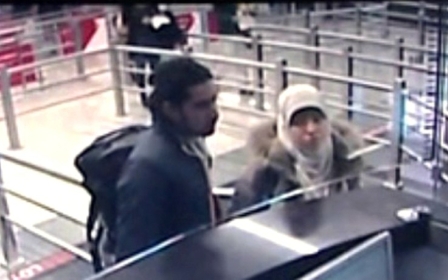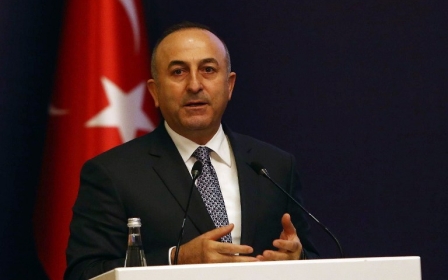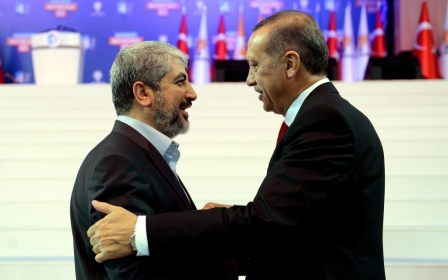Spear-carriers and chainmail warriors: Erdogan's new palace welcome

Spear-carrying guardsmen, warriors bedecked in chainmail, gleaming golden helmets and even a few fake moustaches thrown in for good measure -- Turkey's new president has spared nothing in a dramatic remake of his palace ceremonial guard.
On Monday, Palestinian president Mahmud Abbas could have been forgiven for thinking he had walked onto the scene of a historical costume drama or far-fetched ballet as he arrived for talks in Ankara with Turkish President Recep Tayyip Erdogan.
As Abbas shook hands with Erdogan, the main staircase of the Turkish leader's controversial new presidential palace was occupied by 16 warriors dressed in period armour, carrying spears, shields and clutching fearsome-looking swords.
Some of the costumes did not look entirely convincing and the scene was rapidly mocked on social media, with bloggers tweeting photo-shopped pictures purporting to show Erdogan surrounded by "Star Wars" or "Lord of the Rings"
The official Anatolia news agency later explained that the 16 warriors each represented one of the 16 empires of Turkish history, dating back to well before the Turkic conquest of Asia Minor, where modern-day Turkey is located.
These past chapters of Turkic history include the great Hunnic empire founded around 200 BC though to the Seljuk Empire, the Mughal Empire, and right up to the Ottoman Empire that was dissolved in the 1920s with the foundation of the Turkish republic.
These 16 empires are also symbolised in the 16 stars of the official seal of the Turkish presidency that has been given a new prominence since Erdogan moved from the office of the prime minister in August presidential elections.
State media reports implied that the warriors would be a regular feature at ceremonies in the palace and had not just been wheeled out specially for Abbas.
Social media users rushed to mock the scene.
"Ottoman circus in the palace," tweeted prominent Turkish journalist Kadri Gursel.
Commentator Eren Erdem ironically suggested that behind the disguise one of the warriors was in fact Fuat Avni, the mystery Turkish blogger who claims to be able to foretell Erdogan's every intention.
Erdogan opened his hugely controversial new presidential palace on the outskirts of Ankara in October. The gaudy residence boasts 1,000 rooms and apparently cost some $350 million to construct. Its total area, according to the AFP, encompasses some 2,150,000 square feet.
He says that the palace is a symbol of a resurgent Turkey which he is building. But opponents decry it as an extravagance in an increasingly authoritarian state.
Edogan has also increasingly harked back to Turkish history well before the foundation of modern Turkey in 1923, sparking accusations that he wants to undermine its modern and secular foundations.
In December the country's National Education Council, dominated by members who share Erdogan's Islamic-influenced politics, voted to make instruction of Ottoman Turkish compulsory in high schools.
The move triggered a fierce backlash from secularist opponents of Erdogan and his religiously conservative Justice and Development Party (AKP). It led to Erdogan's prime minister insisting that the course would be an elective and not mandatory.
Middle East Eye propose une couverture et une analyse indépendantes et incomparables du Moyen-Orient, de l’Afrique du Nord et d’autres régions du monde. Pour en savoir plus sur la reprise de ce contenu et les frais qui s’appliquent, veuillez remplir ce formulaire [en anglais]. Pour en savoir plus sur MEE, cliquez ici [en anglais].




